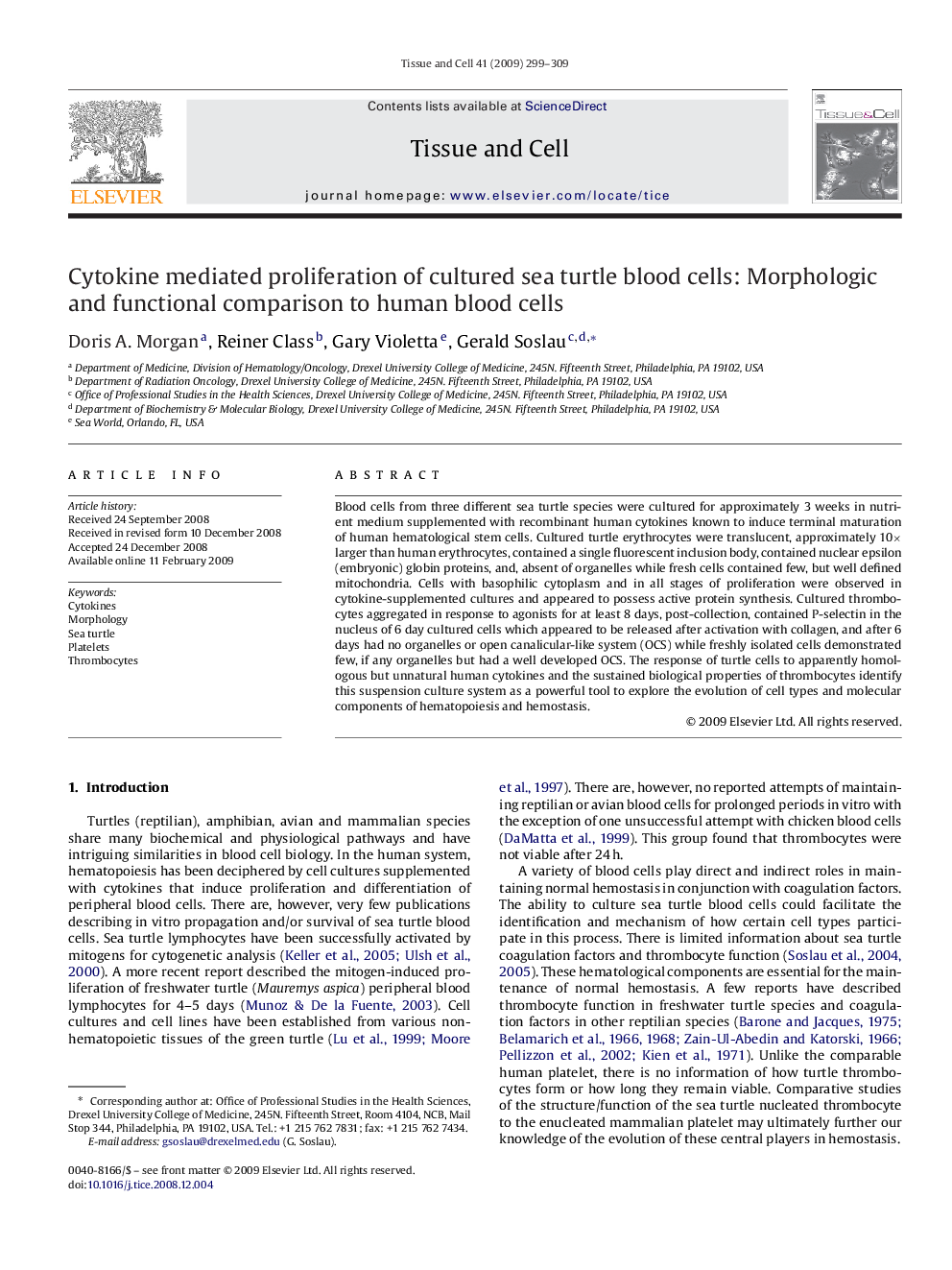| Article ID | Journal | Published Year | Pages | File Type |
|---|---|---|---|---|
| 2203992 | Tissue and Cell | 2009 | 11 Pages |
Blood cells from three different sea turtle species were cultured for approximately 3 weeks in nutrient medium supplemented with recombinant human cytokines known to induce terminal maturation of human hematological stem cells. Cultured turtle erythrocytes were translucent, approximately 10× larger than human erythrocytes, contained a single fluorescent inclusion body, contained nuclear epsilon (embryonic) globin proteins, and, absent of organelles while fresh cells contained few, but well defined mitochondria. Cells with basophilic cytoplasm and in all stages of proliferation were observed in cytokine-supplemented cultures and appeared to possess active protein synthesis. Cultured thrombocytes aggregated in response to agonists for at least 8 days, post-collection, contained P-selectin in the nucleus of 6 day cultured cells which appeared to be released after activation with collagen, and after 6 days had no organelles or open canalicular-like system (OCS) while freshly isolated cells demonstrated few, if any organelles but had a well developed OCS. The response of turtle cells to apparently homologous but unnatural human cytokines and the sustained biological properties of thrombocytes identify this suspension culture system as a powerful tool to explore the evolution of cell types and molecular components of hematopoiesis and hemostasis.
